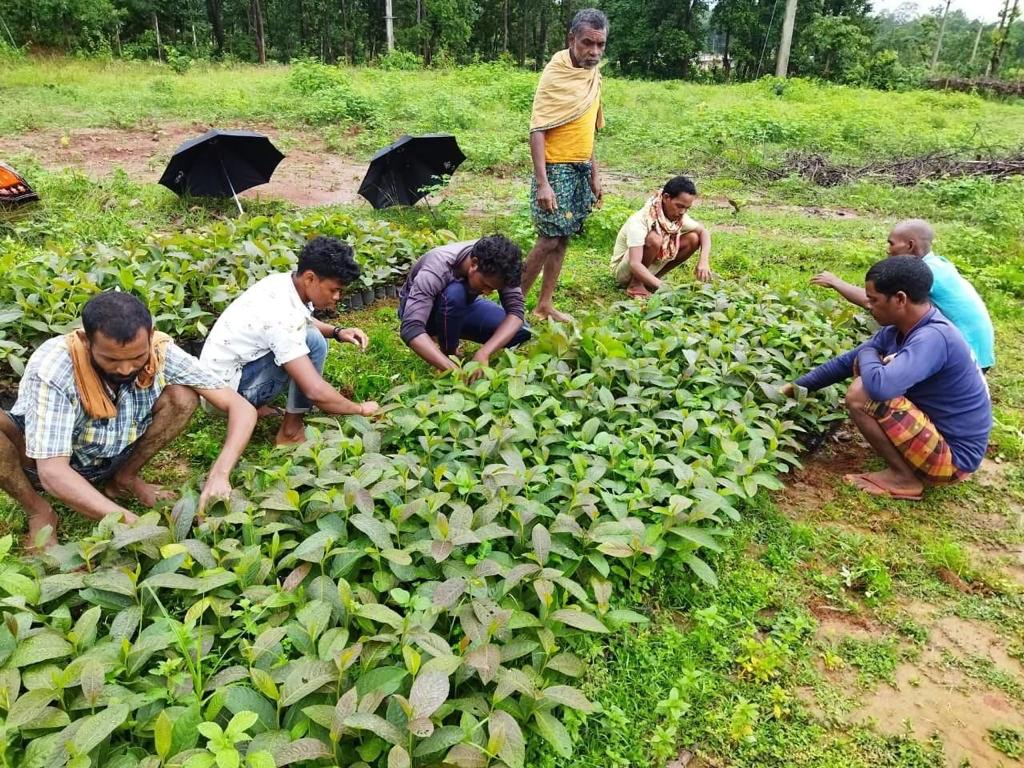Keonjhar: Tussar farming has turned out to be life-changing activity for scores of landless people and women in Keonjhar district. It has enabled them an opportunity to earn their livelihood with dignity. Tussar farming involves growing cocoons from which the silk yarn is extracted to make fabric. The fabric is in great demand both in India and abroad.
Mamata Naik, 36, a poor landless woman of Dhaladihi village under Phulajhar panchayat of Bansapal block in the district is a case in this point. She was earning her livelihood by working as a casual labourer with her job being collection of tussar from nearby jungles.
Little did she know that the tussar she was collecting will one day change her life! The district administration officials one day contacted her and asked her take up tussar farming. She was provided with 2.5 acre of land to start cultivation.
She planted ‘Arjun’ and ‘Asana’ trees on the land with the financial assistance she received from the district mineral foundation (DMF) and Mahatma Gandhi National Employment Guarantee Scheme (MGNREGS). Her tryst with tussar helped her to increase her income substantially.
Soon the efforts of the district administration paid off as many tribal and landless farmers got attracted to tussar farming and took up its cultivation to earn their livelihood. With funds available from the DMF, tussar plantation has now come up on vast tracts of land. A nursery has also been set up and a cocoon-preserving unit has also been built.
The cloth prepared from tussar is in great demand among fashion connoisseurs. Sensing the enthusiasm among local people, the district administration is also planning to establish two mega nurseries at Bansapal and Harichandanpur in the district.
The administration is also trying to spread tussar cultivation to other areas for which it has plans to establish a tussar seed production centre and a disease prevention centre. It is also planning to establish a ‘Tussar Development Committee’ and TRCS to attract more and more people towards tussar farming.
Over, 6,600 people are presently employed in tussar cultivation and its manufacturing in this district. ‘Arjun’ and ‘Asana’ trees have been planted in over 600 hectares of land for production of cocoons.
Experts are of opinions that tussar cultivation can be a great life changing activity in areas that suffer due to mining activities. The cultivation will help reduce poverty, help in increase of green cover on unused land and help in protecting of environment.
